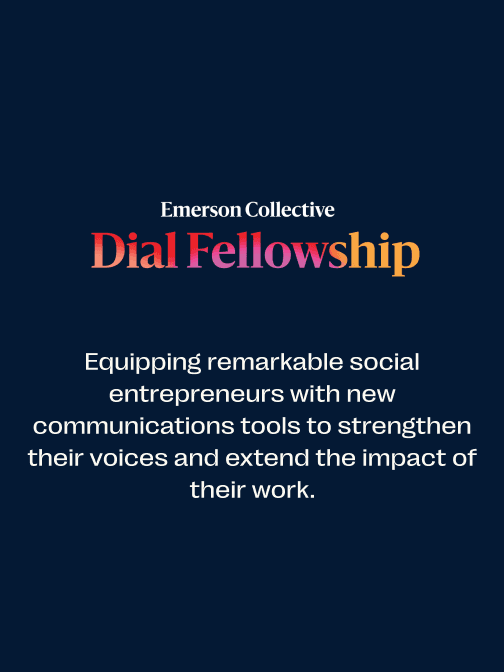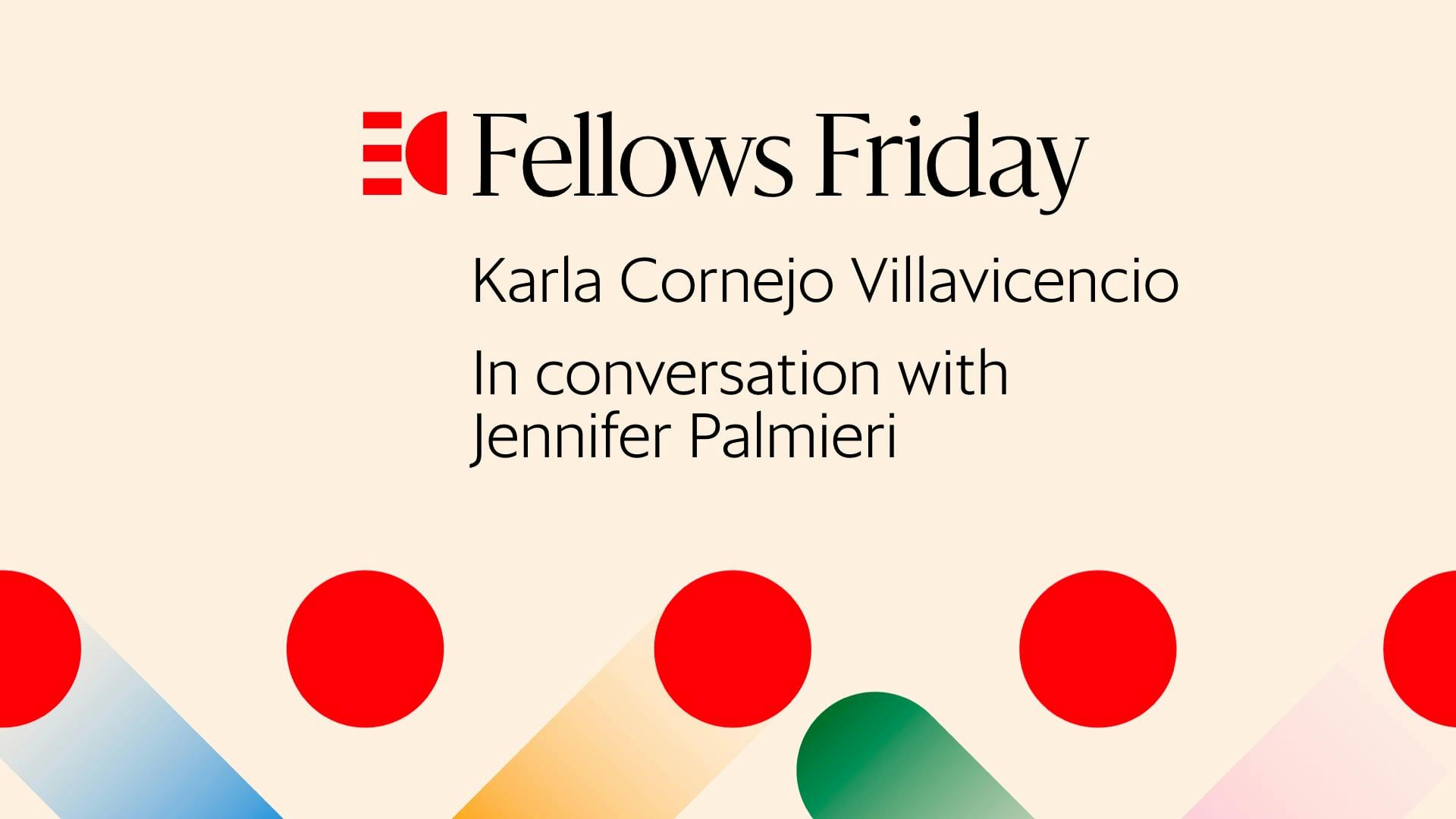
Dial Fellowship
5 min read
The way undocumented people are often represented in the media is deeply problematic and upsetting to Karla Cornejo Villavicencio: the brown skin. The calloused hands. A diverse population rendered a monolith of long-suffering, hard-working laborers.
“We’re not special people who love to work,” says Cornejo Villavicencio, a former DACA recipient and the author of the new book "The Undocumented Americans." “We are hard-working because we need the money because the wages are low… It’s not that complicated.”
Cornejo Villavicencio, a former Emerson Collective Fellow, was one of the first undocumented graduates of Harvard University, which means she herself has had to navigate another type of contrived immigrant narrative — one in which an extraordinary individual, by sheer genius or will, overcomes enormous obstacles to reach the supposed American Dream.
This “good immigrant” narrative is often used, even by immigration advocates, to justify the value of undocumented people—at the cost of overlooking the inherent worth of every immigrant, simply because they are human.
In "The Undocumented Americans," a careful study of undocumented communities around the country in places like New York, Miami, and Flint, Cornejo Villavicencio uses a blend of reportage, memoir, and magical realism to argue that there is no single immigrant story.
Cornejo Villavicencio recently spoke with Emerson Collective Senior Advisor Jennifer Palmieri about "The Undocumented Americans"—and the hard and important work of dismantling tropes about the immigrant community. Their conversation has been edited for clarity, and the full conversation was recorded in the video below.

FELLOWS FRIDAY SERIES: In The Undocumented Americans, Karla Cornejo Villavicencio dismantles tired tropes about the undocumented community.
I knew that I wanted to write a story that was counter to what the predominant narratives were. I find Dreamers to be an extraordinary group of people, not just the ones who go to the Ivy League or who become engineers or doctors or lawyers; a kid DM’ed me on Instagram the other day and said he really appreciated my voice, and he was eager to read my book because I represented him. He was helping his dad with his landscaping business. He wasn't one of the all-star Dreamers. Then I checked out his page, and he was an extraordinarily gifted photographer who took photos of local punk bands. The kind of photography that you'd see in Interview magazine or Nylon. I just wondered about him: how painful it must be to get all these conflicting messages about what makes you valuable, and what makes you a citizen, and what makes you a poster child.
This book shows people as complicated, lovable, weird. I think something we've seen with, for example, the murder of Elijah McClain, is that “weird” is not something to be criminalized or to be hated, and people of color have every right to be weird and erratic and complicated. We deserve that freedom. I think people have really embraced that.
I have been on a healing journey since the book promo, and I've been practicing a lot of DBT, Dialectical Behavioral Therapy, started by a woman I admire very much named Marsha Linehan. She calls her therapy the pursuit of a life worth living — which for a poor person of color is extremely radical, when you might really just want to survive and put food on the table, and not get detained or not get killed.
For children of immigrants specifically, how do you define your life as not just being about repaying your parents' sacrifices? Is it specifically through academic accomplishment, because that is probably what you've been feeling your entire life? As someone who has done that pretty well, I can tell you that all of these stories of the “American Dream” that end with you handing your dad the diploma — they are not mentally healthy.
“Weird” is not something to be criminalized or to be hated, and people of color have every right to be weird and erratic and complicated.
I’ve been communicating with some organizations working in that space to create a database of sliding scale and low-cost mental health providers who are trauma-informed that can be shared with the undocumented community. I am frustrated by the way sometimes people get stuck on a preconception that there’s a stigma against mental illness in the Latinx community. But the truth is our community has a lot of regard for professionals: doctors, lawyers, teachers. If it’s a doctor delivering the message, who can describe anxiety through the physical symptoms in which anxiety can manifest — it really does change the way people think about it.
When I was first diagnosed with mental illness, my father was like, “Do you not love yourself enough? Do you not trust yourself enough?” Very much blaming me for these things — at first. Then he went to the public library in Queens and took out books on depression and anxiety. I remember he came to me and said, “Nena, did you know that having depression and anxiety is just like having diabetes? All you need is a little insulin and you can feel better.” I was like, yeah, dad. It’s kind of like that.
A lot of this depends on whether you're obsessively on Twitter or are not obsessively on Twitter. If you're obsessively on Twitter, you will think that there are a lot of divisions between the Black and Latinx communities, because those are amplified by Twitter. Black Lives Matter, the movement, the organized group, is extremely committed to intersectionality, and to organizing and to educating. And my experience with Latinx communities shows me that people who are undocumented who have very little formal education, and who have deeply ingrained anti-Blackness in them, when they are organized and educated by a community leader or organization deeply rooted in civil rights and social justice—they change, and quickly. Because Latinx and Black communities have a lot in common. We have a lot of the same systems that oppress us. We have a lot of the same hurt. So empathy comes very quickly. When you explain to people that we are not each other’s enemies, and that we actually are stronger together, people listen.
When you explain to people that we are not each other’s enemies, and that we actually are stronger together, people listen.
I'm a funny person and I address a lot of what is painful to me using humor, the way comedians mask their pain with their humor. But I also find that no one wants to read a book that's just sad. I don't. Look, I'm an immigrant, and I like to read. I don't go pick up the saddest book about undocumented people. I will 100% not read it. It has to be funky in order for me to read it. I wanted my book to be funky.